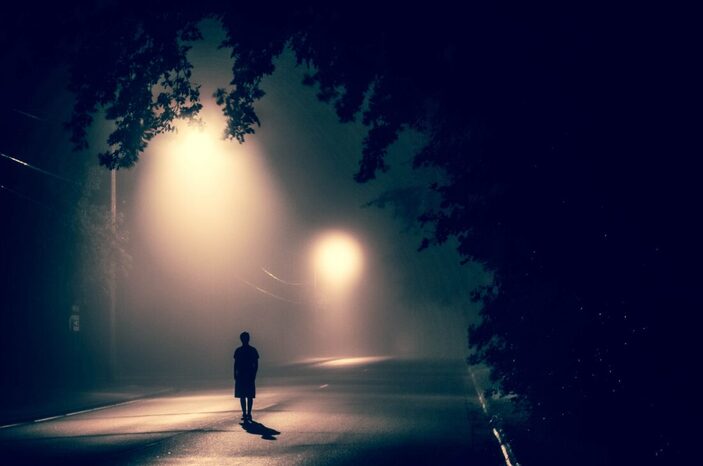HOLDING VIGIL:
FOSTER CARE

Photo Courtesy of Atharva Tulsi
One result of the overturn of Roe v. Wade will be that many more children will be entering foster care, a system that is already underfunded and overwhelmed. Years ago, at my first job out of college, I saw firsthand how a broken foster care system caused great suffering for the teens under its care.
Back then, I worked with seventeen-year-old wards of the state, who had spent most of their lives in one foster placement after another. By the time I’d met them, they had been shipped to a mental hospital, not because they were mentally ill, but because the state had nowhere else to keep them before they aged out of mandated care. My task was to deinstitutionalize them before they got dumped on the curb at eighteen. What did “deinstitutionalize” mean? I had no idea, neither did anyone else. Regardless, at twenty-two, I didn’t hesitate to take on the task.
I almost didn’t get the job. Ellen, the dedicated and overworked program director, liked me well enough, but at the end said, “You’re too small. Most of the teens are twice your size. What are you going to do if you get jumped?” Ultimately, they offered me the position. My hunch is no one else applied because of low pay and the high likelihood of being assaulted.
On my first day of work, I escorted a sturdy teen named Debbie from one unit to another. A narrow hallway separated the two adolescent wings, with locked doors at either end. The hallway contained no emergency buzzer, therefore no way to call for help. I unlocked the first door, brought Debbie through, locked the door behind us, then took a brisk walk through no man’s land. As I unlocked the second door, Debbie grabbed me from behind and choked me.
Realizing I could never overpower her, I used a technique I’d learned as a child when the bigger neighborhood kids came after me. I went limp, collapsing in her arms. That shocked her into letting go long enough for me to push open the second door and rush to safety. Later, an aide told me that walking a patient through the Hallway of Doom was a two-person job.
I learned that most of the teens had spent their lives moving through temporary placements: foster homes, group homes and detention facilities. A few had lost parents to accident or illness, but most had families who couldn’t, wouldn’t or weren’t allowed to take care of them. Because of their transitory lives, most were poorly educated and hadn’t acquired even the most basic of life skills, like how to make a meal or wash clothing.
Early on, the director assigned a psychiatric intern from Yale to work alongside me. The director asked the two of us to lead a therapy group for the wards of the state. We met in the library–another place with no emergency buzzer. Every session, without treading lightly, Dr. Yale brought up the sore subject of mothers and fathers. This topic triggered the kids, most of whom suffered deeply when they thought about their families. The sessions never lasted more than a few minutes and often ended with yelling, fists flying and sometimes, an airborne chair. One of us would run back to grab an aide who would help wrangle our riled-up therapy group back to the adolescent unit. During his short stay, Dr. Yale seemed to view the kids more as research subjects than people. I felt both happy and safer when he left for his next rotation.
My favorite charge, Jimmy, stood more than six feet tall. Straggly brown hair fell to his shoulders, his clothes always appeared grimy and ill-fitting. He looked terrifying but was the saddest and gentlest of all my kids. Having spent his life in short-term foster placements, he never went to school, therefore could neither read nor write. He based his worldview on what he saw on daytime TV. He couldn’t tell time and didn’t know how to ask for street directions without frightening someone. Once, I took Jimmy to a fair. Thinking he was heading into a restroom, he strolled into a small shed with a NO ENTRY—HIGH VOLTAGE sign on the door. As a cop collared him, I yelled, “Sorry, sorry. Please let him go. He can’t read.”
Jimmy had been removed from his parents early on because of abuse and neglect. However, from the moment I met him, all Jimmy talked about his family constantly, saying all he wanted to do was go home.
Right before Christmas, I moved heaven and earth to arrange a visit to his family, who lived in New Haven, about an hour away. I called ahead and set up a time to meet at their apartment. That day, I made sure Jimmy showered, combed his hair, and put on clean clothes. Jimmy could barely contain his excitement. Neither could I. Duped by my own magical thinking, I envisioned a warm reunion, culminating with Jimmy being embraced by his family, who over the years miraculously had become stellar care givers. I dared to believe they might petition the state to return him home.
After we located the apartment building, we rang the buzzer by his family’s name. No response. We waited, then walked up the steps and knocked hard on the apartment door. No response. We asked around the neighborhood. No sign of the family.
After a while, we gave up. Jimmy cried all the way home. I struggled to hold back my own tears. I couldn’t fix Jimmy’s life, nor could I erase the seventeen years of neglect by his family, not to mention the neglect he experienced under state care. When I returned to my house, I curled up under a quilt and wept.
Christmas that year, I hosted a party for my kids at our farmhouse. Most of the teens had a history of harming themselves and others, so my housemates and I had to hide cleaning supplies, medicines, and sharp objects. That night, we sang by the piano, built a fire, drank hot chocolate, and ate cookies. Without exception, the kids relaxed in our home. I have the photos to prove it. In fact, even if you looked closely at the pictures, you might not guess that these teens led unspeakably difficult lives.
A year into my job, one of my charges told me that a male aide had sexually harassed her on several occasions. I reported what she said to the administration, and they initiated an investigation. The inquiry remained private, so I didn’t hear what happened. I do know that not long after I reported him, he arrived back at work on the same ward.
I guess I’d violated some bro code because from that point on, a few of the aides turned against me. One day, a psychotic patient trapped me in a hallway. He slammed me against the wall then he squeezed the breath out of me, bruising my ribs. Even after I managed to reach the emergency buzzer, no one showed up for a good long time. After that, I realized it wasn’t safe to stay on the job.
By this time, I’d gotten attached to my kids. I figured if I had to leave, I’d take them with me. So, I came up with a plan to adopt a few of the seventeen-year-olds, buy a house and “de-institutionalize” them by giving them a loving home, my own loving home. However, I didn’t have a cent to fund this wackadoodle scheme. Of course, I lacked the life experience to pull it off, but that didn’t occur to me.
After creating a heartfelt proposal asking for donations, I sent it to everyone I knew. Nobody thought it was a good idea to give money to an idealistic twenty-three-year-old wanting to adopt a bunch of endearing but potentially dangerous seventeen-year-olds.
I abandoned the adoption plan, went to graduate school, and earned a master’s degree. Then I co-founded and co-directed a center that studied unintentional injuries and developed prevention interventions, especially in under-resourced populations.
Over the years, I’ve tried to keep track of my teens. I learned that one passed away in Maine at a treatment center. One was arrested for rape. Another died by suicide, walking down the middle of a four-lane highway. Recently, I discovered that Ellen, the dedicated program director is still at it, working with at risk teens, trying to make their lives better. As far as I know, only one of my charges experienced a good outcome. Danny wound up at a Christian group home in New Hampshire that helps young adults re-boot.
I have one good memory from that year that stands out from the rest. Every summer, the American Dance Festival came to Connecticut College in New London, a town close to the hospital. I believe Pilobolus, Twila Tharpe, Paul Taylor, Alvin Ailey, and other companies were there. I phoned the program director asking if we could visit the dancers while they practiced. Not only did they invite the teens to campus, but they also arranged for them to participate in a private workshop.
Another staff person and I showed up with about eight kids. We gathered in a bright, airy room with a shiny wooden floor. The kids stood with eyes wide open, awestruck by the grandeur and serenity of the place. Starting out slowly, dancers led the teens in a series of moves. At first, they acted shy and resistant, but little by little, the performers drew them into their enchanting world of movement and imagination. During the last piece, inhibitions gone, everyone leapt around the room, faces glowing. As the workshop ended, my eyes filled with tears as I watched my unrestrained kids reveling in beauty and exuding joy. I felt a bittersweet combination of grief and gratitude. I knew that within an hour, they’d be back at the hospital, locked behind cinderblock walls. But I also felt grateful. Perhaps that glimpse of beauty and sensation of joy might give them hope for a future that could include beauty and joy, despite the brokenness of their current situation. The likelihood of that happening felt low, but the thought brought solace.
During my one-year stint with those wards of the state, I learned more about poverty and our defective human service delivery system than in all my years of formal education. Sadly, that knowledge came at the expense of my charges, their tremendous suffering. The experience forever left its mark on me, informing my values, career decisions, and inspiring my writing and painting. My heart still holds vigil for those kids I couldn’t save.
In my town, the foster care system is much better than the one I encountered years ago. I know both foster parents and professionals who work with programs in the community. I am impressed by and grateful for their amazing skills and dedication.
However, for the most part, foster care in the US is both underfunded and under resourced. Worse yet, it is still common practice to ship hard-to-place kids to mental health facilities where they can experience abuse. The bottom line is that children are suffering. I worry about how this already broken system will handle a greater influx of children which will occur because of the overturn of Roe v. Wade.
My hope, albeit faint, is that legislators on both sides of the aisle will acknowledge the situation and step up to embrace and nurture these children who deserve much better care than we have given them.

Podcast: Play in new window | Download